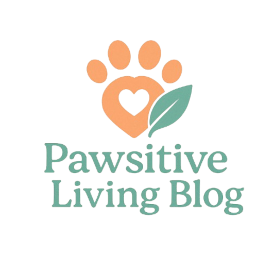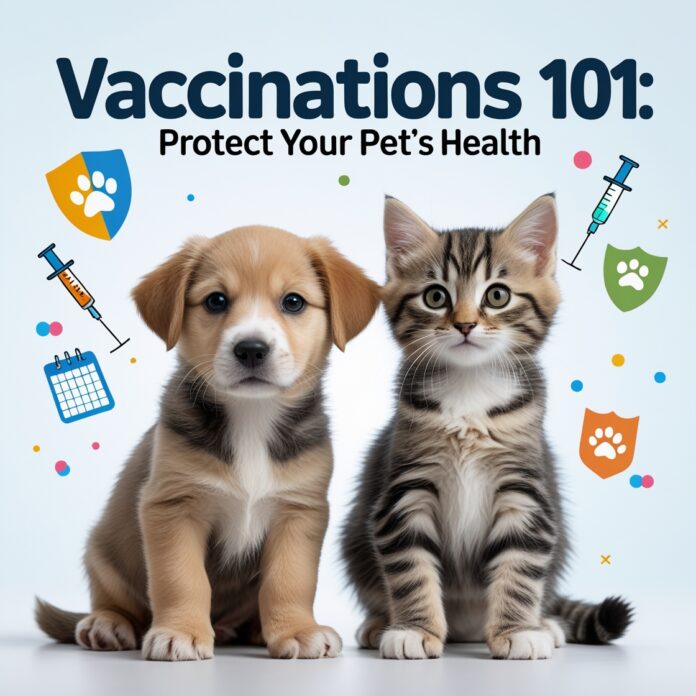One of the key steps in taking care of your pet’s health and ensuring its happy and long life is to have it vaccinated. As a pet owner who is concerned about the health and wellbeing of your pet, it is important for you to be aware of the vaccinations that are truly necessary for your pet and the reason they are very talk we about vaccinations. Vaccine for pet is a thing that helps in stopping the diseases which could be very dangerous and even result in the death of an animal or seriously harm it on a long-term basis. This piece of writing will be the guideline of what kind of vaccines are the most important for your pet, the time of their need for them, and the reasons why they are the must-have.
Suppose it is the case of a puppy or a kitten at the beginning of their first vaccination or an old pet who needs a shot, it is only by knowing the most important information about vaccination that you will always keep your buddy in good health.
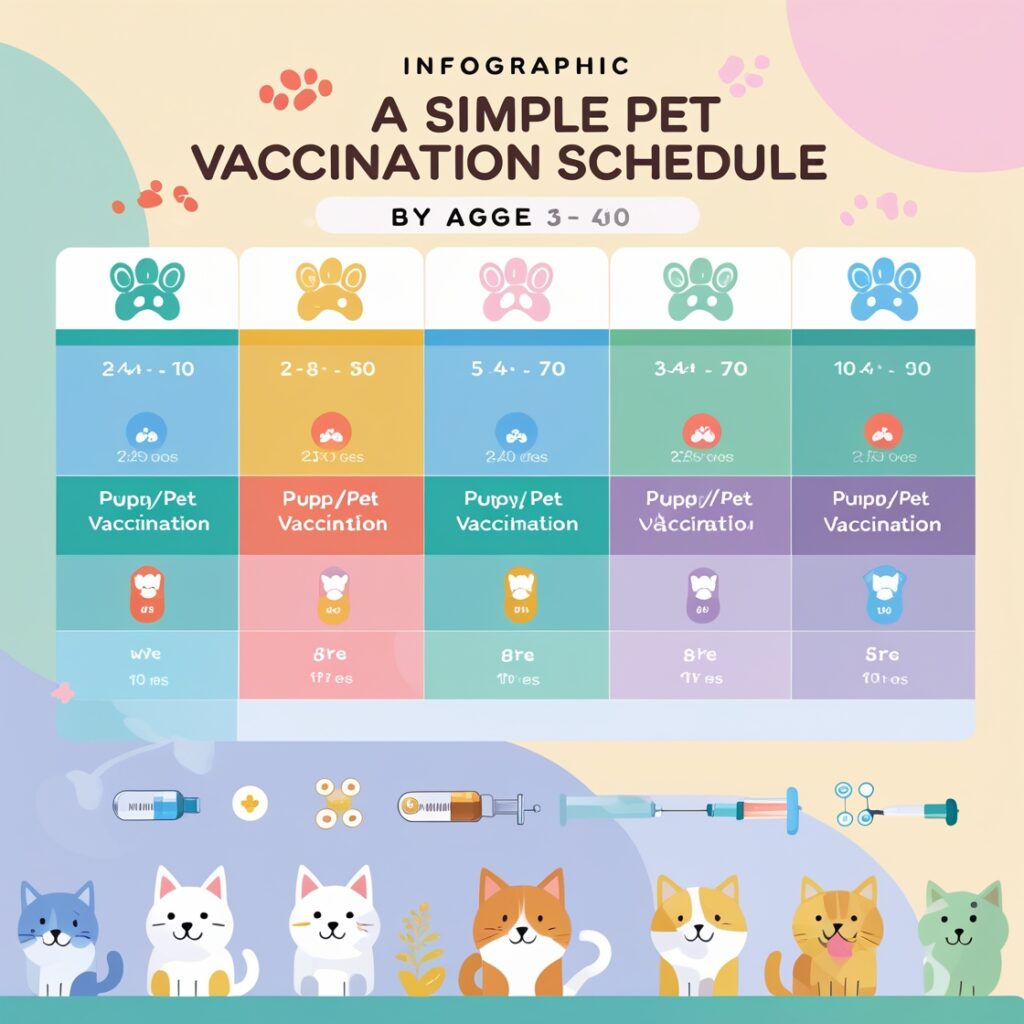
What Are Vaccinations?
A vaccination is anything that triggers a response from the body that leads to the production of cellular and humoral immunity to the body due to the presence of an agent like a live microbe. Vaccines are composed of very small, innocuous mutations of the pathogen or a similar substance that stimulates the system but does not cause the disease. Such a “learning” experience trains the body’s defense mechanisms to find and fight the pathogen in case of recurring exposure.
Animal vaccination is for the purpose of keeping pets from getting sick, rather than treating the diseases that have already occurred, a process that is called “prevention”. As such, pet vaccination is a powerful lifelong shield against the most dangerous infections and the most communicable viruses animal exchange among themselves in the environment as well as the bacteria that cause very dangerous infections of pets. Consequently, without appropriate vaccinations, a pet would become susceptible to diseases that could have been avoided easily.
Essential Vaccines for Your Pet
There are a few of the most vital vaccinations that every pet has to receive. These vaccines are against some of the most prevalent and harmful diseases that can affect cats and dogs. Your vet might also suggest some other vaccines based on an animal’s age, lifestyle, and health history. The list below includes the basic vaccines for dogs and cats.
For Dogs:
- Rabies Vaccine: This is the vaccine for the rabies virus, commonly known worldwide, has always been a basic requirement for the domestic pet population. Rabies is a viral disease that causes nervous system disorders and after symptoms appear it is lethal in almost 100% of cases. The disease is highly infectious and can be transmitted by a bite or a scratch from an infected animal to humans. Rabies is mostly under the strict control of the law of many countries, and dog owners are required to vaccinate their pets. The vaccine not only shields your dog but also enables you to keep your family and local community from dying by this dangerous disease.
- Distemper Vaccine: A viral infection called canine distemper presents symptoms like severe respiratory, gastrointestinal, and nerve problems. Direct contact with infected animals or respiratory droplets are the most common ways of spreading the disease. Distemper can be fatal; still, the vaccine is very effective in preventing it. The vaccine for distemper is usually one of a combination of vaccinations which also protects the animal against other diseases such as parvovirus and adenovirus.
- Parvovirus Vaccine: Parvovirus is a highly infectious and perilous disease which canines can contract. It is answerable for the outbreak of severe gastrointestinal symptoms like vomiting, diarrhea, and, worst of all, dehydration that can cause a dog’s death if the symptoms are not treated in time. Parvovirus gets rapidly diffused, especially in places where canines gather and interact, for instance, in parks or shelters.
- Vaccinating your dog against parvovirus is, to say the least, necessary for puppies who are particularly at risk. Darker talks some more about this in their article: Studies on how vaccines help to protect against virus infections.)
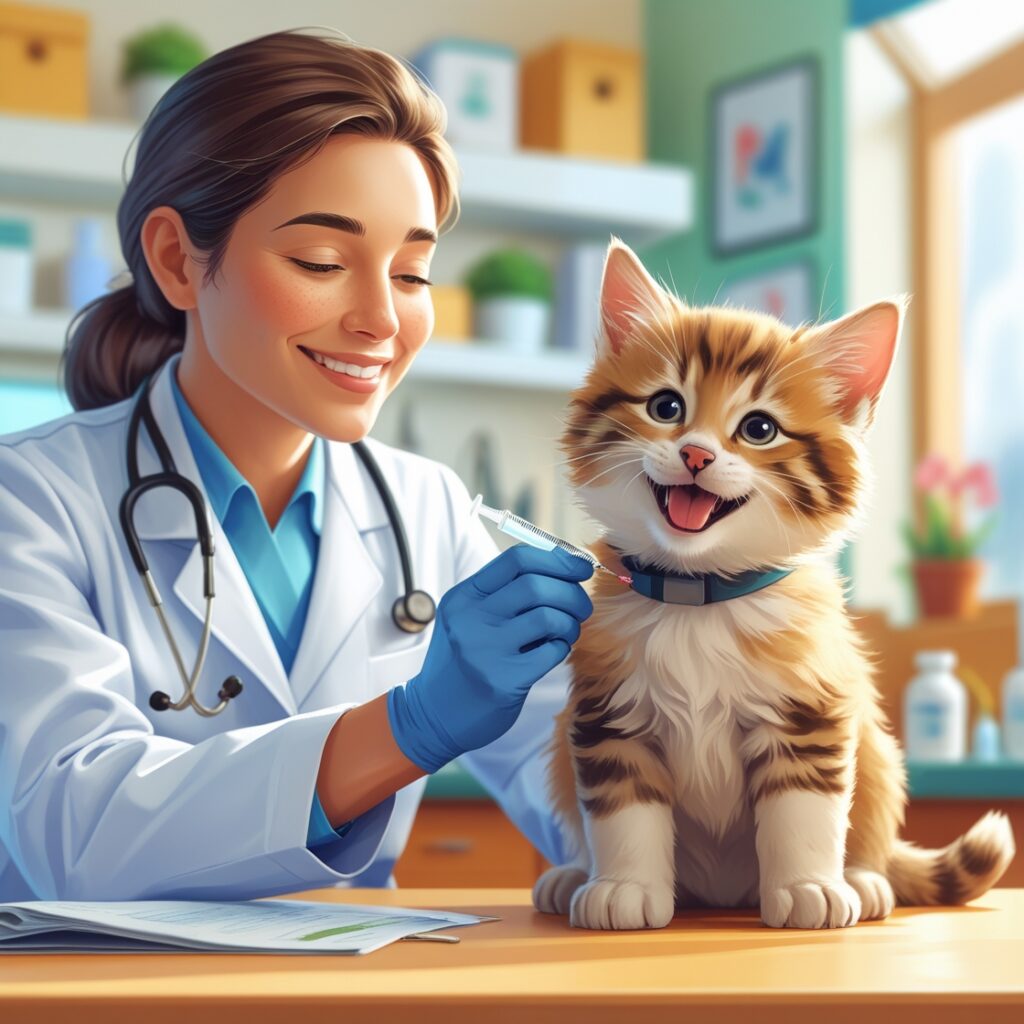
- Adenovirus (Hepatitis) Vaccine: Adenovirus causes infectious canine hepatitis, a disease that attacks the liver, kidneys, and eyes. Symptoms include fever, vomiting, and abdominal pain, and if left untreated, it can lead to liver failure. The adenovirus vaccine is often included in combination vaccines and is essential for preventing this potentially fatal disease. (Outbound link: PetMD – Adenovirus in dogs)
- Leptospirosis Vaccine: Leptospirosis is a bacterial infection that affects the liver and kidneys. It can spread through urine from infected animals and is particularly common in areas prone to flooding. This vaccine is often recommended for dogs who live in rural or outdoor environments, but it may be considered for all dogs, depending on regional outbreaks. (Internal link: Leptospirosis prevention for dogs)
For Cats:
- Rabies Vaccine: As with dogs, the rabies vaccine is required by law in many places for cats. Rabies is a fatal disease that can be transmitted to humans, so vaccinating your cat is critical not only for their health but also for public safety.
- Feline Herpesvirus (FHV) Vaccine: Feline herpesvirus is one of the most common causes of respiratory infections in cats. The virus can lead to severe upper respiratory issues, sneezing, and eye infections. While FHV is not usually life-threatening, it can significantly impact your cat’s quality of life. The vaccine can help reduce the severity of symptoms if your cat is exposed to the virus. (Internal link: Feline herpesvirus prevention)
- Calicivirus Vaccine: Calicivirus is another common respiratory infection that can cause ulcers in the mouth and upper respiratory symptoms in cats. The vaccine helps prevent infection and reduces the severity of symptoms if exposure occurs.
- Feline Panleukopenia Vaccine (Distemper): Feline panleukopenia, also known as feline distemper, is a viral disease that affects a cat’s gastrointestinal and immune systems. It is highly contagious and can be fatal, particularly in kittens. Vaccination is the best defense against this deadly disease.
When Should Your Pet Get Vaccinated?
The timing of your pet’s vaccinations depends on their age and lifestyle. Typically, vaccinations start when your pet is a puppy or kitten and continue through adulthood. Here’s a general timeline for when your pet should receive their vaccines:
- Puppies: Puppies should begin their vaccination series at around 6-8 weeks of age, with boosters given every 3-4 weeks until they are 16 weeks old. After that, a booster shot is typically given at one year of age and then every 1-3 years, depending on the vaccine and regional requirements. (Internal link: Puppy vaccination schedule)
- Kittens: Kittens should begin their vaccinations at around 6-8 weeks of age, following a similar schedule as puppies. Booster shots are given every 3-4 weeks until they are 16 weeks old. After that, they will need a booster shot at one year, followed by regular updates. (Outbound link: Kitten care vaccination guide)
- Adult Pets: Adult dogs and cats will need booster shots every 1-3 years depending on the vaccine type and your veterinarian’s recommendations. Regular checkups are important to ensure that your pet’s vaccines remain up to date and that they receive any necessary additional boosters.
Vaccination Myths You Should Ignore
Many misconceptions about pet vaccinations can lead to confusion or delay in vaccinating pets. Here are some myths you should avoid:
- Myth #1: Vaccinations are harmful to pets. The benefits of vaccinations far outweigh the risks. Vaccines have been proven to be safe and effective, with only minor, temporary side effects in some cases.
- Myth #2: Indoor pets don’t need vaccinations. Even if your pet stays indoors, they can still be exposed to viruses and bacteria, particularly if visitors or other animals come into contact with your pet. Vaccinating your indoor pet helps protect them from unexpected exposure.
- Myth #3: Older pets don’t need vaccines. Vaccinations are important at all stages of life. As pets age, their immune systems may become weaker, making them more susceptible to infections. Vaccines help keep them protected.
The Importance of Regular Vet Visits
Vaccination is just one part of your pet’s health care. Regular vet visits allow you to catch any health issues early and ensure your pet is receiving the appropriate care. During these visits, your vet will review your pet’s vaccination history, recommend any necessary vaccines, and provide general health checks.
Conclusion: Keeping Your Pet Safe and Healthy
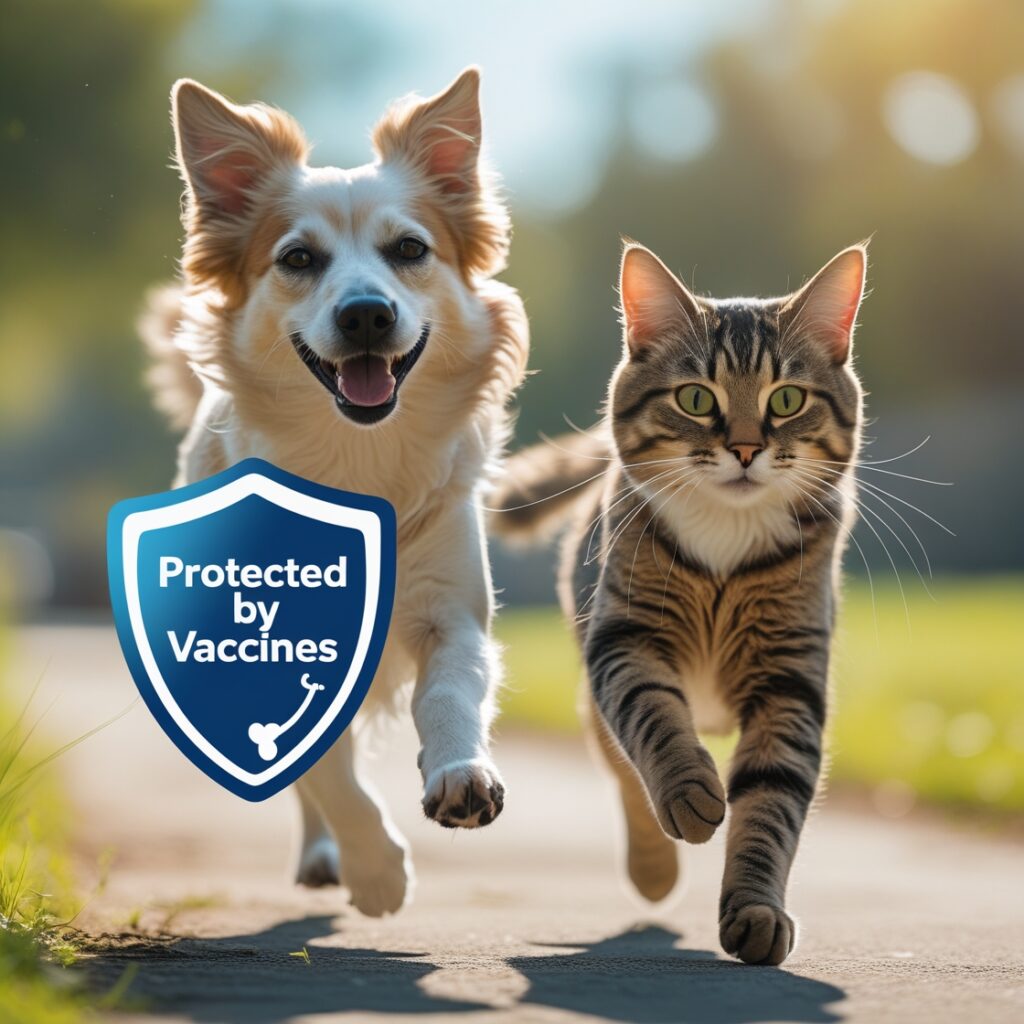
Vaccinations are essential for maintaining your pet’s health and protecting them from dangerous diseases. By following the vaccination schedule recommended by your veterinarian, you ensure that your pet stays safe from preventable illnesses. Talk to your vet about which vaccines are necessary for your pet, and keep up with their vaccination schedule to give them the best chance at a long and healthy life.


